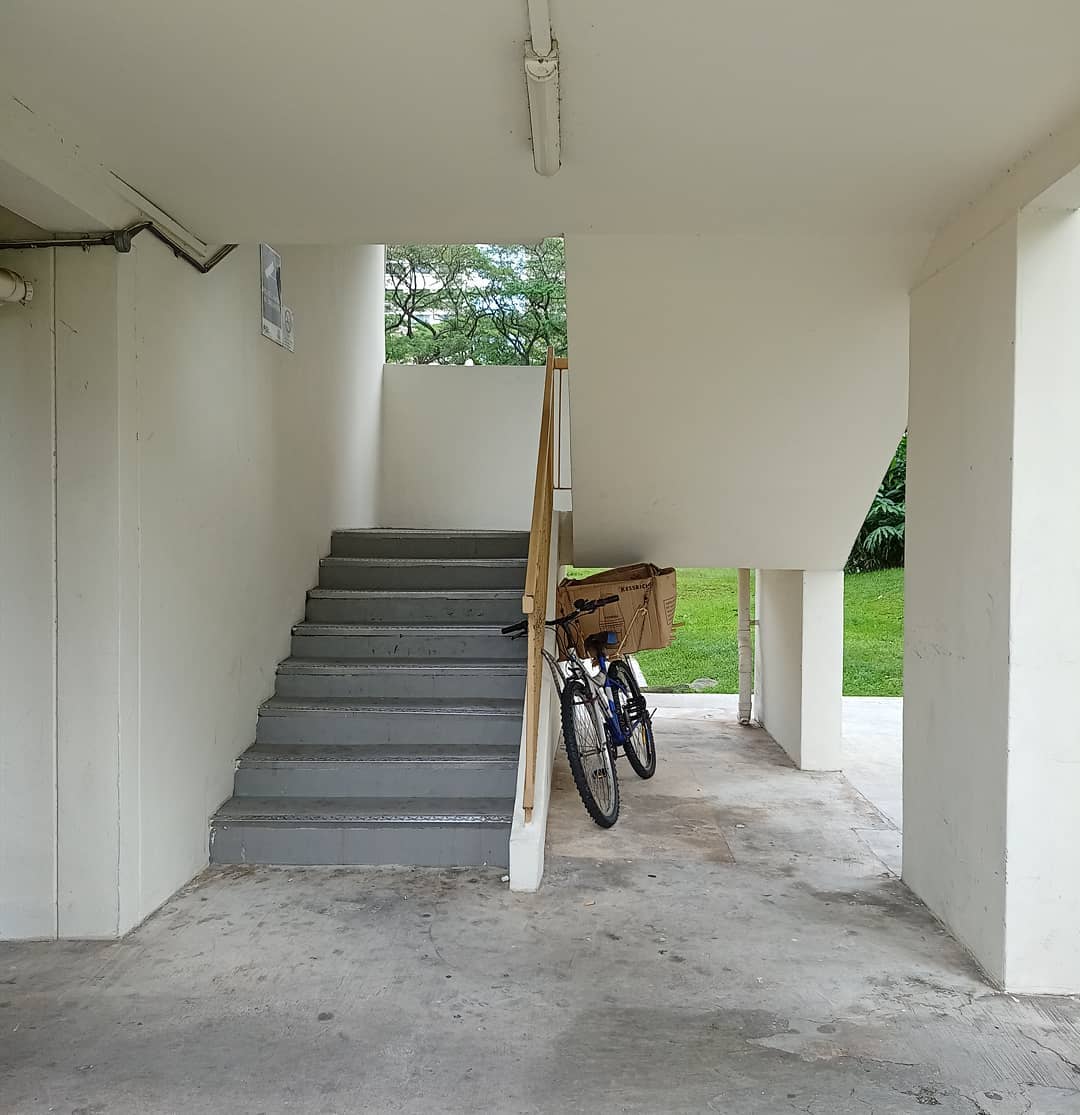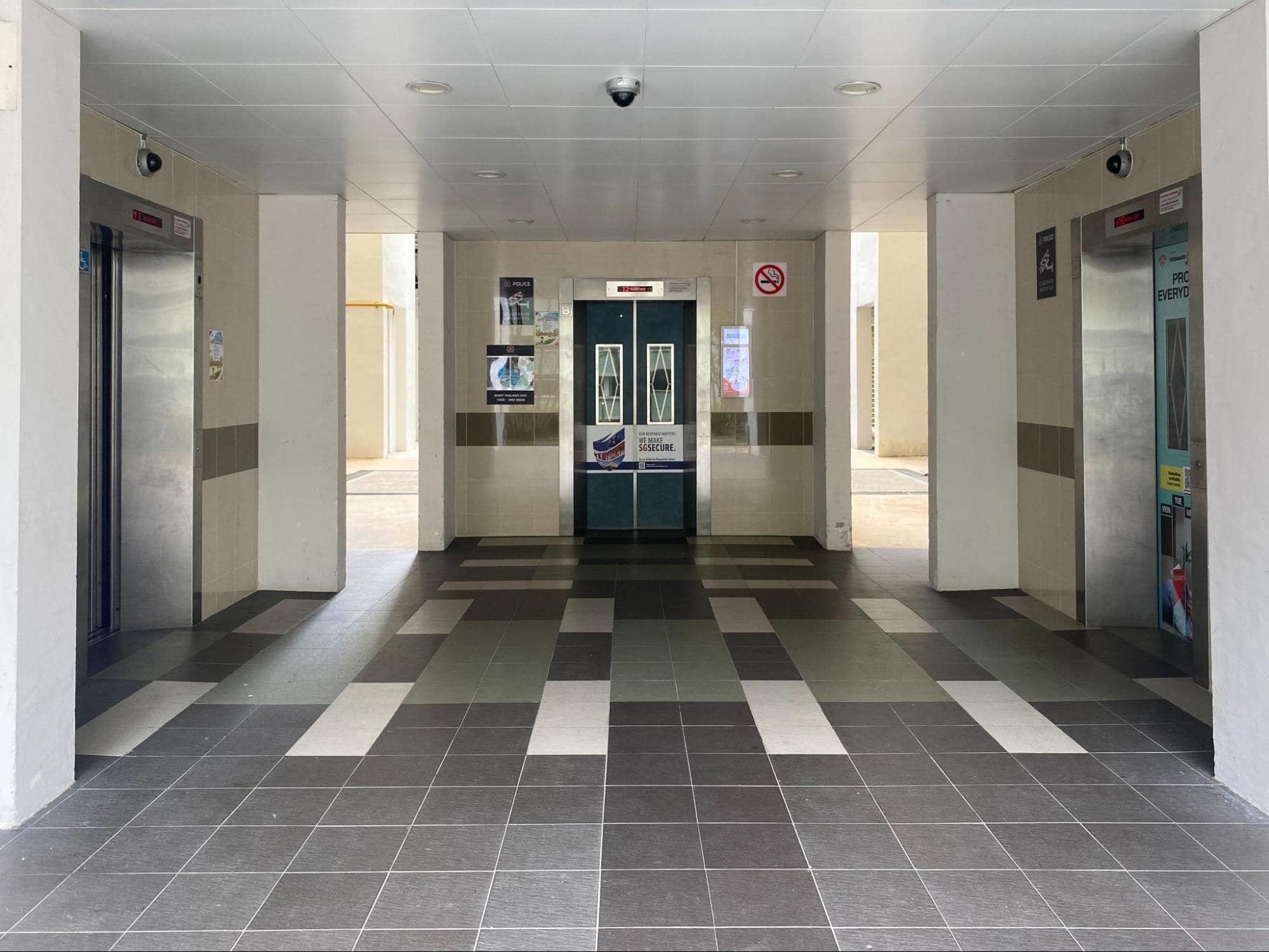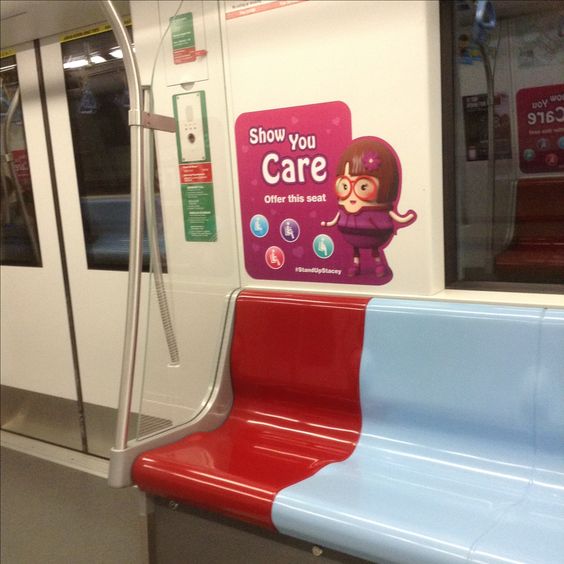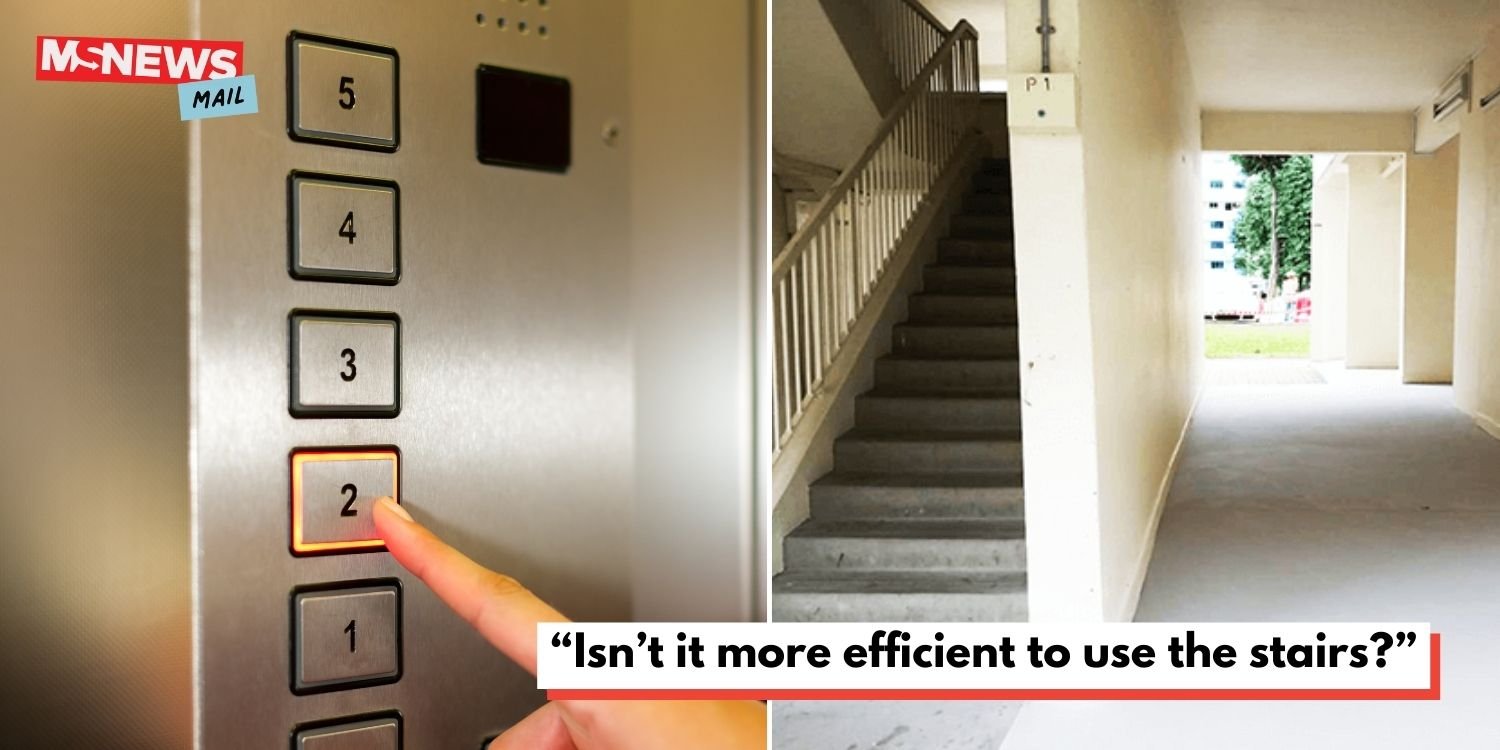I’m tired of my 2nd floor neighbours always using the lift
MS Mail is a series that spotlights contributors’ perspectives. Have an interesting take you want to share? Reach out to news@mustsharenews.com.
I live in an HDB block and have no qualms about sharing the lift with my neighbours. Most of them anyway.
In recent months, I’ve been seeing more of my second-floor neighbours — both young and old — taking the lift instead of the single flight of stairs that brings them right to their doorsteps.

Source: Facebook
I often ask myself: “Isn’t the staircase option more efficient?”
2nd floor neighbours are young and abled, why use the lift?
I’ve been staying in the same block with these second-floor neighbours for more than a decade but only became bothered by the issue when I saw younger kids from the households picking up the habit.
It’s understandable if the elderly or those with certain medical conditions cannot take the stairs.
But I take offence when abled children — who look like they’re in kindergarten or primary school — use the lift to get to their homes on the second floor.
On one particularly infuriating occasion, the lift that serviced my block was stuck on the highest floor for about one to two minutes.
I was on the ground floor, and waiting with me was a young boy.

Source: TheSmartLocal. Image for illustration purposes only.
When the lift finally arrived, we hopped on, but imagine my annoyance when the boy’s finger reached out to the ‘2’ button. I couldn’t help but roll my eyes.
I get it, not everyone likes climbing stairs. It might be scary for some, or just plain tiring — after all, it’s easier to let a machine carry you to where you need to go.
But surely the time you spend waiting for the lift is worth more than the effort needed to climb a single flight of stairs.
Even if you take your time with the latter — especially as an energetic young person — you can probably get to your doorstep in sub one-minute.
I also wondered if the boy picked up the habit from others in his household.
If that’s the case, is it appropriate to teach kids about the “easy way out” when they’re that young?
Apart from that particular incident, there were other urgent instances where I was dying to use the toilet.
When I see my neighbours’ fingers hovering over the cursed ‘2’ button, I can’t help but cuss at them on my bladder’s behalf.
Not too different from ‘priority seat’ situation
Time and efficiency aside, is it also not more considerate to let those on higher floors have access to the lift?
This shouldn’t be too difficult to relate to. After all, it’s not too different from the priority seat situation on public trains and buses.

Source: Pinterest
In both scenarios, residents and commuters pay the same fees to enjoy the same facilities, regardless of how much they depend on them.
Priority seats in public transport are offered to those who need it more — pregnant women, the elderly, the injured.
In the context of public housing, the residents who rely more on lifts are those living on the higher floors.
After all, they cannot be expected to climb multiple flights of stairs to get home. If they wanted to exercise that much, they’d just use the StairMaster at the gym.
For those on the second floor, however, using the stairs is not as unreasonable.
If commuters can accept that we should “reserve” priority seats for the needy, shouldn’t we also accept that public lifts should be for those staying on higher floors?
It’s not always about what you paid for, but whether there’s someone else who needs it more than you.
Education might be the solution
I’ve thought long and hard about a solution to this issue but can’t seem to arrive at one that’s feasible and effective.
Taking the lift will always be the more appealing option as compared to taking the stairs.
Of course, there are ways to make the lift the unappealing option. One such option is to reprogram the lift to serve customers on the higher floors first before heading back down to those on the lower floors.
But those living on the lower floors will surely feel that they are discriminated against. After all, the lift would be deliberately going out of its way to inconvenience them.
At the end of the day, I feel that education is the best remedy for this issue.
Habits start from a young age and if parents teach their kids not to be lazy and to be more considerate and situationally aware, they might grow up to be better members of the community.
Also read: The OCBC scam took my life savings, this is how I made my peace with it
The OCBC scam took my life savings, this is how I made my peace with it
Have news you must share? Get in touch with us via email at news@mustsharenews.com.
Featured image adapted from Kzenon on Canva and B Team. For illustration purposes only.








